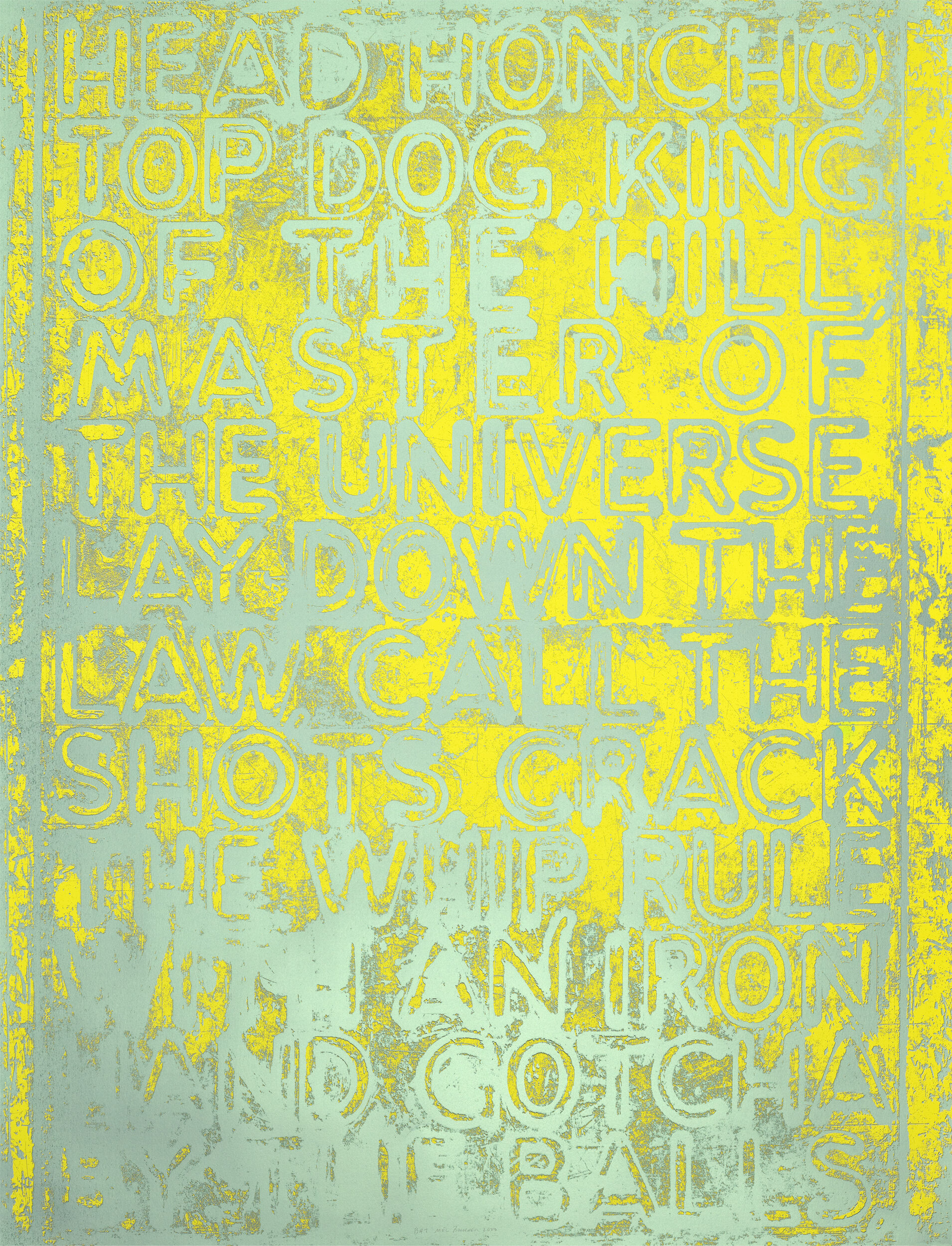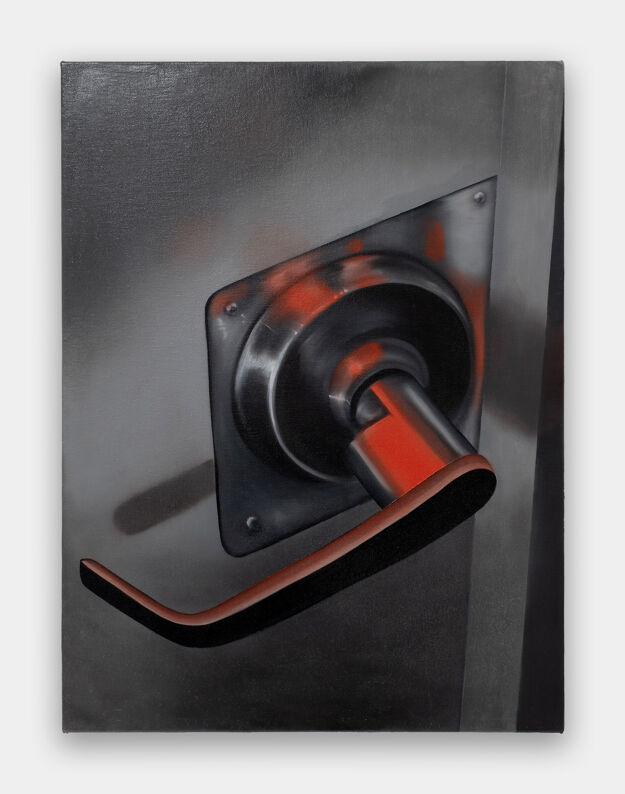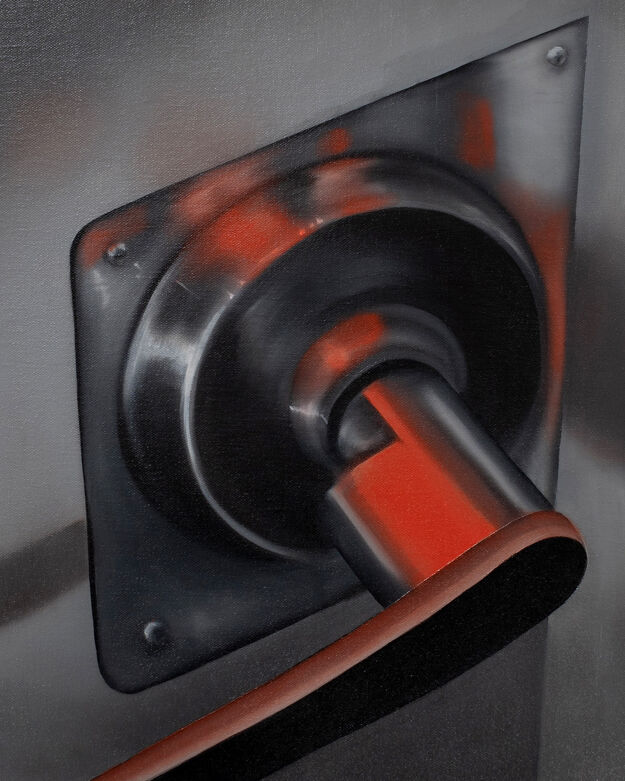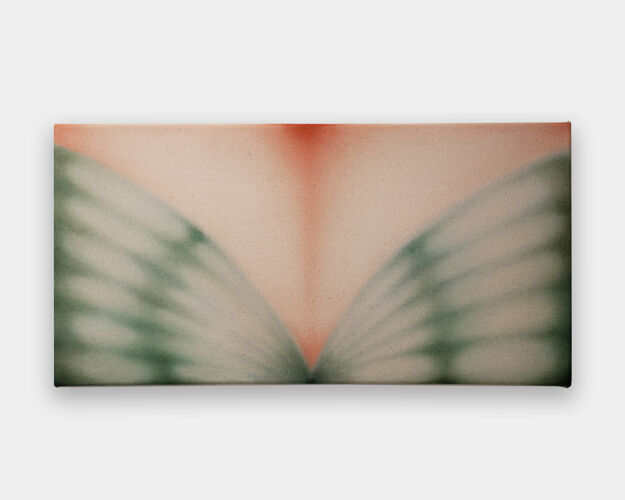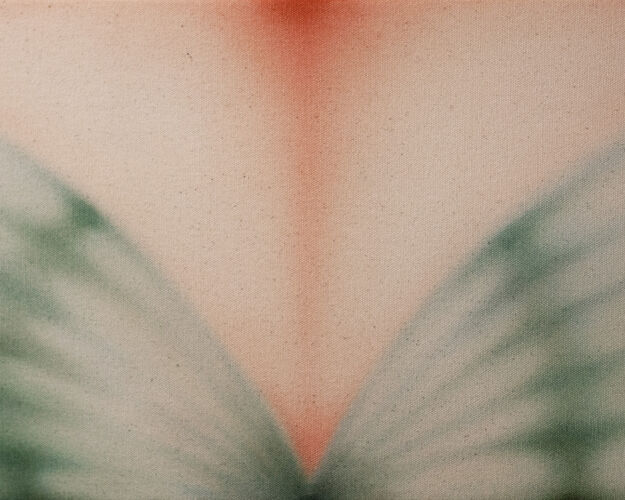About the artwork:
This print presents one of the artist's most recognized works in a striking combination of lemon yellow and an iridescent pigment that shifts from icy blue to metallic green, depending on the viewer's vantage point.
Bochner's work has explored language as a subject for the visual arts since the 1960s. Beginning in 1994, the artist continued his investigation of language in his printmaking projects with Two Palms. In the studio, Bochner has developed an exhaustive repertoire of traditional and non-traditional printmaking techniques, including: etching, photogravure, cyanotype, mirrored glass, highly-textured silkscreen, salt prints, large scale rubber stamps and monoprints of unprecedented scale and physicality. The artist has developed these activities to expand the range of philosophical, psychological, political and visual ideas that his work engages.
Bochner says of his work: "One of the reasons I focus on ordinary language is because everybody can read it and have some personal reference point. To me, the emotional trajectory of the painting is how one gets from the first word to the last word—from the prim and proper to the crude and vulgar. I concentrate a lot on the sense and sound of the language. The flow of words has to have a certain kind of rhythm or a certain kind of lack of rhythm. That’s how the narrative of the picture is constructed."
About the artist:
Mel Bochner's work examines how painting and language are constructed and understood. The artist, coming of age during the radical changes in the late 1960s, made language a subject of his work just as the medium of painting was slowly losing its preeminent position in the visual arts. Bochner's work explores the relationships between the word and the image in an effort to make us more attentive to the unspoken codes that underpin our engagement with the world.
Mel Bochner (b. 1940) is recognized as one of the leading figures in the development of Conceptual art in New York in the 1960s and 1970s. Emerging at a time when painting was increasingly discussed as outmoded, Bochner became part of a new generation of artists which also included Eva Hesse, Donald Judd, and Robert Smithson—artists who, like Bochner, were looking at ways of breaking with Abstract Expressionism and traditional compositional devices. His pioneering introduction of the use of language in the visual led Harvard University art historian Benjamin Buchloh to describe his 1966 Working Drawings as ‘probably the first truly conceptual exhibition.'
Bochner came of age during the second half of the 1960s, a moment of radical change both in society at large as well as in art. While painting slowly lost its preeminent position in modern art, language moved from talking about art to becoming part of art itself. Bochner has consistently probed the conventions of both painting and of language, the way we construct and understand them, and the way they relate to one another to make us more attentive to the unspoken codes that underpin our engagement with the world.
Bochner has worked with Two Palms since 1994.
